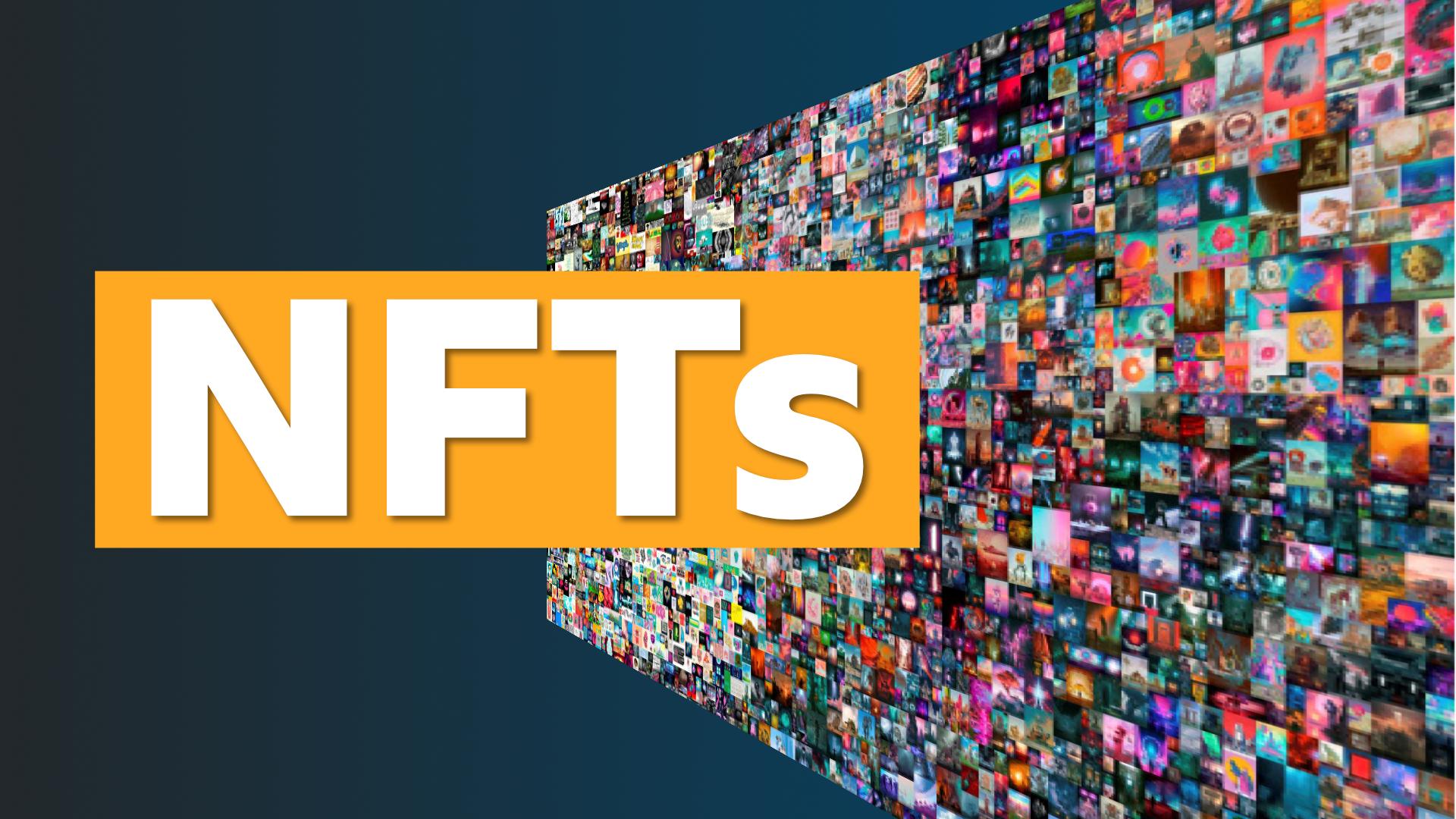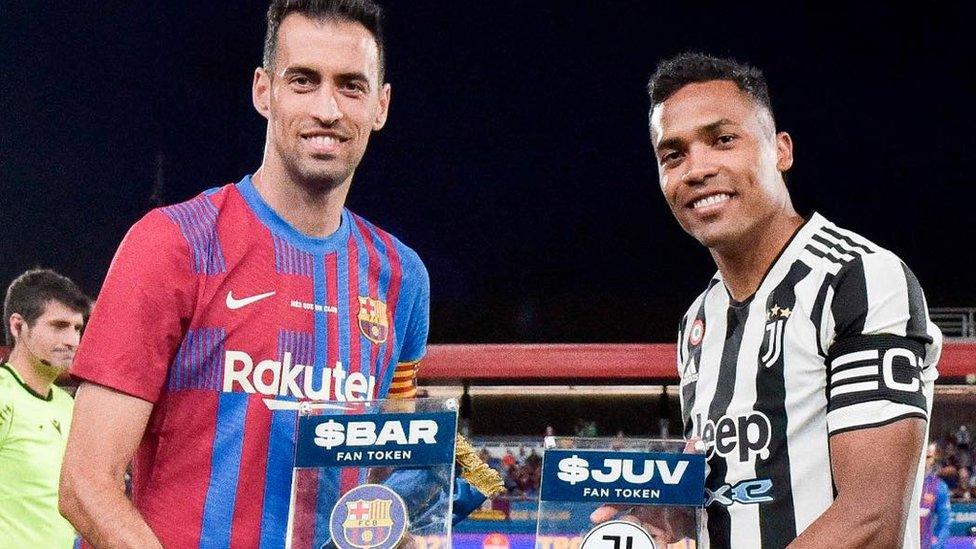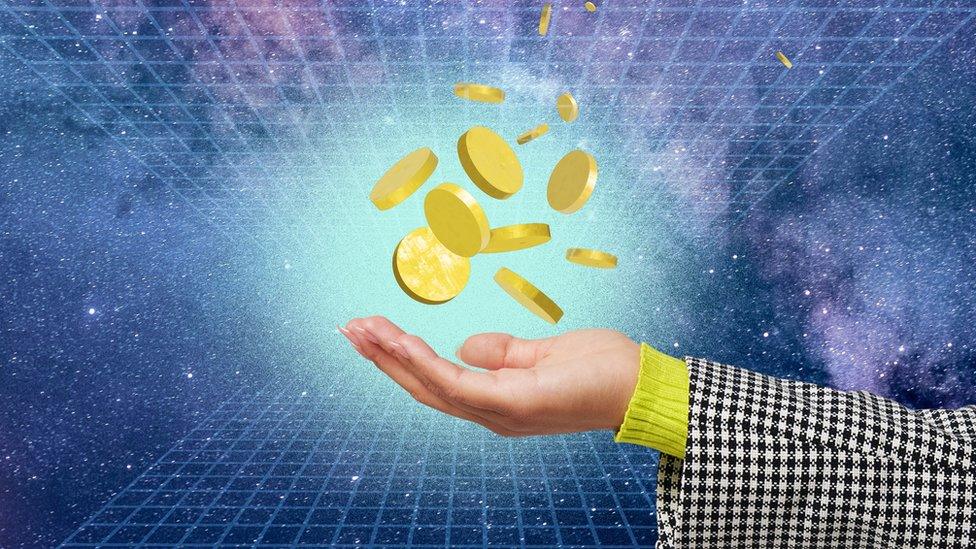Clubs promoting NFTs pose 'risk' to fans, MPs warn
- Published

Sports clubs that issue cryptocurrency fan tokens risk damaging their reputations, a group of MPs has warned.
The rise of non-fungible tokens (NFTs) and similar assets in sports and the arts are a concern to the Culture, Media and Sport committee.
The committee has warned clubs against exploiting fans.
New Financial Conduct Authority (FCA) rules around crypto investments mean firms must now display a warning.
The message tells people not to invest "unless you're prepared to lose all the money you invest".
The BBC has approached the government for a response.
NFTs are "one-of-a-kind" assets in the digital world that can be bought and sold, but which have no tangible form of their own.
The digital fan tokens can be thought of as certificates of ownership for virtual or physical assets. Owning them can give fans access to certain perks, such as being able to vote in fan polls or getting access to ticket ballots.
Some of them can be traded, like an NFT - but that means their value can vary widely too, with the potential to gain or lose a lot of money.
NFTs enjoyed a period of considerable popularity - and soaring prices - during and after the pandemic, with people and businesses encouraged to create them, but MPs say their fluctuating prices are troubling.
"Clubs are promoting volatile crypto-asset schemes to extract additional money from loyal supporters, often with promises of privileges and perks that fails to materialise," said Dame Caroline Dinenage, chair of the CMS committee.
The Conservative MP continued: "Fan token schemes must not be used as a substitute for meaningful engagement with supporters."
The committee report added that "the unique relationship between clubs and fans means that fan speculation on sport-based crypto-assets carries a real risk of financial harm to fans and reputational harm to clubs."
It also voiced concerns over the rise of crypto assets in the arts, with Dame Caroline saying that "artists are at risk of seeing the fruits of their hard work pinched and promoted without permission".
A fake Banksy NFT was sold to a British collector through the artist's website for £244k in August 2021.
NFTs have been popularised as a way to create and sell digital art on blockchains - the digital ledgers underpinning crypto transactions - but do not give the buyer the actual artwork or the copyright attached.
How do fan tokens work in sport?
Fan tokens are digital membership collectibles which can used to access rewards such as voting in polls or ballots for exclusive tickets.
Some fan tokens can be bought and sold on a market - but the value of these has fallen dramatically since their peak a few years ago.
A recent announcement of a Socios partnership with Tottenham Hotspur sparked a backlash from fan groups, who said that fan engagement with the club should not cost money and pointed out the risks of losing money through buying cryptocurrency.
A Socios spokesperson said: "fan token holders received more than 24,000 matchday tickets and over 1,000 items of merchandise last season, and continue to engage with their club in a unique new way."
"Fan tokens offer new and complementary benefits to clubs' traditional fan engagement beyond the boundaries of geography and, unlike NFTs, are regulated by the FCA."
Marketing requirements for fan tokens and similar crypto-assets was brought within the scope of the FCA's broader set of rules for financial promotions on 8 October.
Firms promoting them must be clear about the risks of investing and cannot inappropriately encourage people to invest, such as by referring a friend.
'Easy cash grab'
Football finance expert Kieran Maguire told the BBC that large football clubs likely saw crypto-assets as an "easy cash grab" and a chance for more revenue streams after the pandemic.
But he said the hype around assets like fan tokens and NFTs has since dwindled, along with their value.
"A wave of optimism was created which underpinned and created speculative values for [them]. Then when people actually worked out exactly what the benefits were, they were pretty insignificant, and people started to look for an exit route," Mr Maguire said.
The "stampede" that followed, he added, led to both negative prices and "very few transactions taking place".
Fan tokens can usually be exchanged with each other as like-for-like, "fungible" assets, whereas NFTs carrying unique digital identifiers and intended to be one-of-a-kind collectibles cannot.
Formula 1 teams have turned to NFTs as a way to engage fans or offer membership perks in recent years.
The Mercedes F1 team announced a series of NFTs in April 2022 with then-partner FTX - several months before several months before the exchange collapsed and its owner Sam Bankman-Fried was arrested.
More recently the Williams F1 team, partnered with crypto exchange Kraken, held a contest letting NFT owners vote for tokens to be displayed on its cars at the upcoming US Grand Prix.
Oracle Red Bull Racing also offers an NFT range through its partnership with exchange and sponsor, Bybit.

Are you affected by the issues raised in this story? You can get in touch by emailing haveyoursay@bbc.co.uk, external.
Please include a contact number if you are willing to speak to a BBC journalist. You can also get in touch in the following ways:
WhatsApp: +44 7756 165803
Tweet: @BBC_HaveYourSay, external
Please read our terms & conditions and privacy policy
If you are reading this page and can't see the form you will need to visit the mobile version of the BBC website to submit your question or comment or you can email us at HaveYourSay@bbc.co.uk, external. Please include your name, age and location with any submission.
- Published16 December 2022

- Published10 December 2021

- Attribution
- Published9 June 2022

